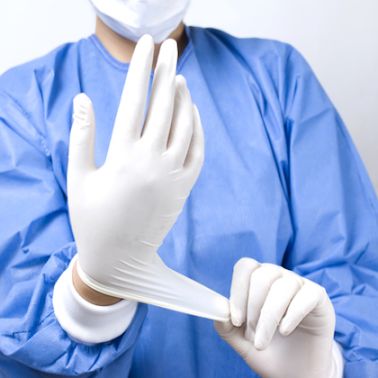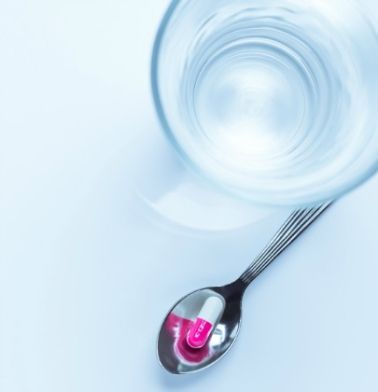Understanding sexual disorders
Understanding Sexual Health Disorders
Share the post
Share this link via
Or copy link

Gettyimages.com/couple in bed
A lot of people are familiar with premature ejaculation or impotence, but sexual health disorders go far beyond those. Sexual health disorders are some of the most difficult to treat because people are too embarrassed to talk about them. When you have sex, you want to feel confident, healthy, and attractive. Having to share with your partner that you have a sexual disorder doesn’t make you feel any of those things. So, a lot of individuals suffering from sexual health disorders do not speak up. As a result, many people are left in the dark about these rather common conditions. So if and when they encounter one, they judge it, are afraid of it, or simply don’t understand it. Here are sexual health disorders we need to talk about.

Image Source: Shutterstock
Desire disorders
There are four main types of sexual disorders. Let’s start with desire disorders. If your partner doesn’t have the urge to have sex, if sex rarely crosses his mind, if he seems completely disinterested when you try to initiate sex, he could suffer from a desire disorder.

Corbis Images
Arousal disorders
Those with arousal disorders still have the desire to have sex, but struggle to physically perform. This can be one of the most frustrating disorders because the individual actually wants to have sex but can’t.

Image Source: Shutterstock
Orgasm disorders
Love MadameNoire? Get more! Join the MadameNoire Newsletter
We care about your data. See our privacy policy.
Orgasm disorders are any disorders in which the individual cannot orgasm, has a delayed orgasm, or orgasms too quickly. There are also orgasm disorders linked to psychological ones, in which a person might feel deep sadness after orgasm.

Image Source: Shutterstock
Pain disorders
Pain disorders pertain to disorders that cause physical pain during sex. These, unlike the first three categories, cannot be psychological and are exclusively physical and brought on by an underlying medical condition.

Image Source: Shutterstock
Premature ejaculation
Premature ejaculation affects roughly 20 to 30 percent of men. So don’t be too hard on your early finisher—there was a very good chance you were going to date one eventually. Premature ejaculation is typically caused by fear about performance or some sort of anxiety disorder.

Image Source: Shutterstock
Inhibited ejaculation
Inhibited ejaculation is when a man is unable to ejaculate. In many cases, this is a psychological problem and the man purposely keeps himself from ejaculating. In some cases, certain medications—particularly those that treat mood disorders—can cause the problem.

Bigstockphoto.com/Glucose meter with good result sugar level and accessories for checking and measuring sugar level concept of diabetes and healthy lifestyles
Retrograde ejaculation
Retrograde ejaculation is the term for when a man does ejaculate, but rather than exit the penis, his sperm goes back inside of his bladder. This is common in diabetics and is usually brought on by nerve damage.

Image Source: Shutterstock
Erectile dysfunction
Erectile dysfunction is the term for when a man cannot get or maintain an erection. This can be caused by nerve disorders, psychological problems, as well as chronic illnesses.

Corbis Images
Low libido
Low libido is a desire disorder and describes low or no sex drive. It can be caused by high blood pressure, diabetes, depression, anxiety, and certain medications. As many as 43 percent of women and 31 percent of men suffer from low libido at some point in their lives.

Image Source: Shutterstock
Mechanical aids
There are several methods for treating sexual disorders. Let’s start with mechanical aids. These can include penile pumps, external splints (meant to hold the penis upright during an erection), rings (designed to improve blood flow), and vibrators.

Woman in therapy. Photo: Shutterstock
Therapy
If the problem is psychological, the affected individual might seek out therapy. Many times, stress around career, relationships, body image, family life, or other issues can cause sexual dysfunction.

Shutterstock.com
Surgery
If the problem is physical and mechanical aids or medication cannot help, one might turn to surgery. Many men turn to penis implant surgery when medication or mechanical aids do not help.

Shutterstock
Medication
Medication for sexual dysfunction is used for arousal and desire disorders. These include Viagra, Cialis, Adcirca, Levitra, Staxyn, and Stendra, to name a few. If anxiety or depression is causing sexual dysfunction, a person might take medication for those, but that is not directly sexual dysfunction medication.

Image Source: Shutterstock
Hormones
Often, sexual dysfunction is caused by a hormone imbalance. A doctor might check one’s hormone levels before looking at anything else and see if the affected individual needs testosterone or estrogen.

Image Source: Shutterstock
Sex therapy
If the issue is psychological, or perhaps stemming from problems inside the relationship, the affected individual, alone or with his partner, might seek out sex therapy. A sex therapist can get to the root of your issues, and help you find productive ways to talk about sex.







